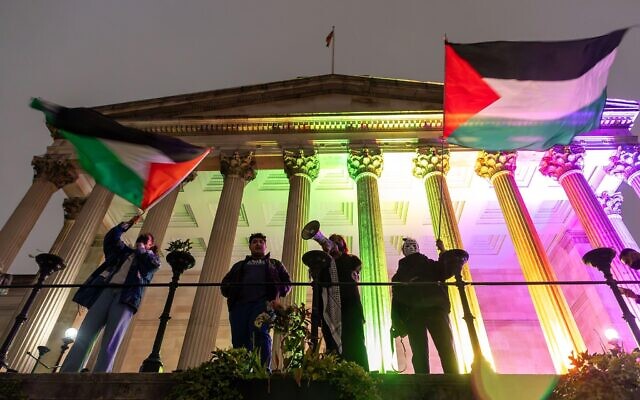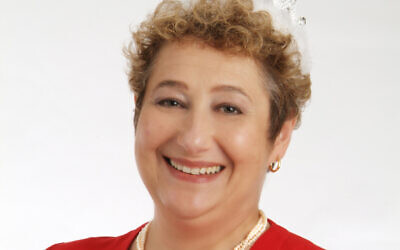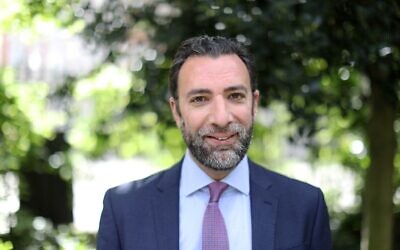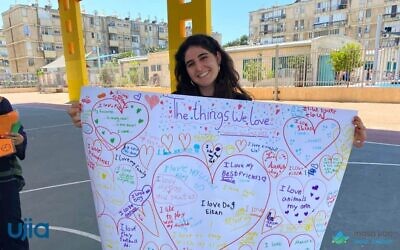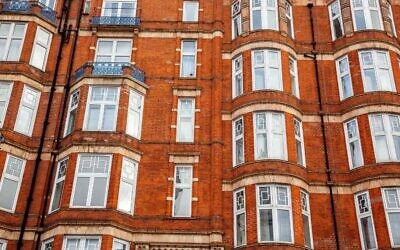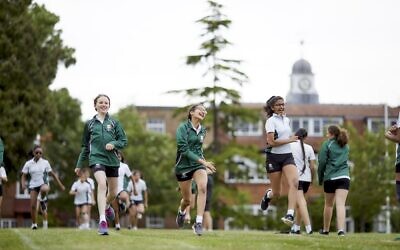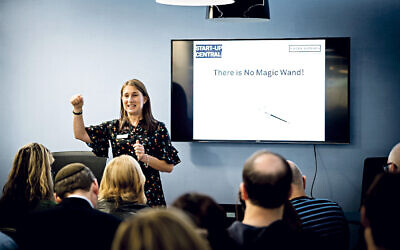UCL granted High Court order to clear out Gaza protest encampment
The university took legal action against the “unauthorised occupational encampment” on its main site, claiming activists were trespassing on private land.
University College London (UCL) has obtained a High Court order to regain control of part of its campus, which has been occupied for months by a protest against the conflict in Gaza.
The university took legal action against “persons unknown” over the “unauthorised occupational encampment” on its main site in the centre of the capital claiming activists were trespassing on private land.
It sought a court possession order to “prevent disruption” to its community and after spending more than £200,000 on security since tents were first erected in early May, the court was told.
Judge Francesca Kaye granted the university the order at a hearing in London on Tuesday.
Her ruling comes in the wake of the Universities of Birmingham and Nottingham securing similar orders against pro-Palestinian protest encampments on their land last month.
The judge concluded that protesters had “no real prospect” of showing that UCL had acted in a discriminatory way or that an order would be an unlawful interference with their human rights.
Katharine Holland KC, for UCL, said in written arguments that it sought “an immediate order for possession” covering its main campus stretching from Gower Street to Gordon Street and Gordon Square and from Gower Place to Torrington Place.
“The aim is to protect the claimant’s right to possession of its own land and enable it to carry on the activities of the university and prevent disruption to other members of the university’s community,” she said.
“The encampment concerns current events in the Gaza Strip and UCL’s alleged complicity in Israel’s role in that conflict.”
The protest began on May 2 with 12 tents, growing to an encampment that “at its peak” involved around 50 people and some 52 tents, Ms Holland said.
As of July 18, some 43 tents remained with about 10 people involved in the protest, she added.
The university had identified “escalating incidents and disruption” allegedly associated with the encampment, with there being “obvious concern” about its ability to use its main quad for events such as its student “welcome week” in September, the court was told.
“Matters have escalated to such a degree that by July 19 2024, UCL had spent more than £200,000 on security fees for managing the encampment,” Ms Holland said, something the university described as “unsustainable”.
Ms Holland said the University Management Committee agreed on July 2 that UCL should “seek to obtain an eviction order through court proceedings”.
She continued: “It is apparent from the minutes of the meeting that this was a decision reached after careful consideration of a number of factors, including the extent of the impact of the encampment on UCL’s ability to deliver its core educational and related functions,
The barrister said UCL had “taken reasonably practicable steps to ensure freedom of expression”.
Ms Holland added that the encampment could not be characterised as an expression of free speech or right to protest due to it excluding UCL from the “rightful possession of property” and because it sought to “pressurise” the university “to surrender to its demands”.
The university had previously been unable to identify protesters at the encampment, although two students called Shaun Boodram and Kais Al-Kaisi were later named as defendants.
Barrister Audrey Cherryl Mogan, representing the pair, briefly appeared at Tuesday’s hearing to say both were withdrawing their defence to the possession order bid.
UCL’s legal team said the duo had previously claimed the bid to oust the encampment was “unlawful” and discriminated against their race, beliefs or religion.
Ijeoma Omambala KC, also representing the university, told Tuesday’s hearing there was “no evidence” supporting the allegations.
Judge Kaye granted UCL a summary possession order – a legal step to decide the cases in the university’s favour without a full trial.
She said the university’s decision-making process was “appropriate” and that an order covering its whole campus was “compatible” with protesters’ human rights.
“I’m satisfied that … UCL is entitled to and has a right to regain possession of its land,” she concluded.

Thank you for helping to make Jewish News the leading source of news and opinion for the UK Jewish community. Today we're asking for your invaluable help to continue putting our community first in everything we do.
For as little as £5 a month you can help sustain the vital work we do in celebrating and standing up for Jewish life in Britain.
Jewish News holds our community together and keeps us connected. Like a synagogue, it’s where people turn to feel part of something bigger. It also proudly shows the rest of Britain the vibrancy and rich culture of modern Jewish life.
You can make a quick and easy one-off or monthly contribution of £5, £10, £20 or any other sum you’re comfortable with.
100% of your donation will help us continue celebrating our community, in all its dynamic diversity...
Engaging
Being a community platform means so much more than producing a newspaper and website. One of our proudest roles is media partnering with our invaluable charities to amplify the outstanding work they do to help us all.
Celebrating
There’s no shortage of oys in the world but Jewish News takes every opportunity to celebrate the joys too, through projects like Night of Heroes, 40 Under 40 and other compelling countdowns that make the community kvell with pride.
Pioneering
In the first collaboration between media outlets from different faiths, Jewish News worked with British Muslim TV and Church Times to produce a list of young activists leading the way on interfaith understanding.
Campaigning
Royal Mail issued a stamp honouring Holocaust hero Sir Nicholas Winton after a Jewish News campaign attracted more than 100,000 backers. Jewish Newsalso produces special editions of the paper highlighting pressing issues including mental health and Holocaust remembrance.
Easy access
In an age when news is readily accessible, Jewish News provides high-quality content free online and offline, removing any financial barriers to connecting people.
Voice of our community to wider society
The Jewish News team regularly appears on TV, radio and on the pages of the national press to comment on stories about the Jewish community. Easy access to the paper on the streets of London also means Jewish News provides an invaluable window into the community for the country at large.
We hope you agree all this is worth preserving.


